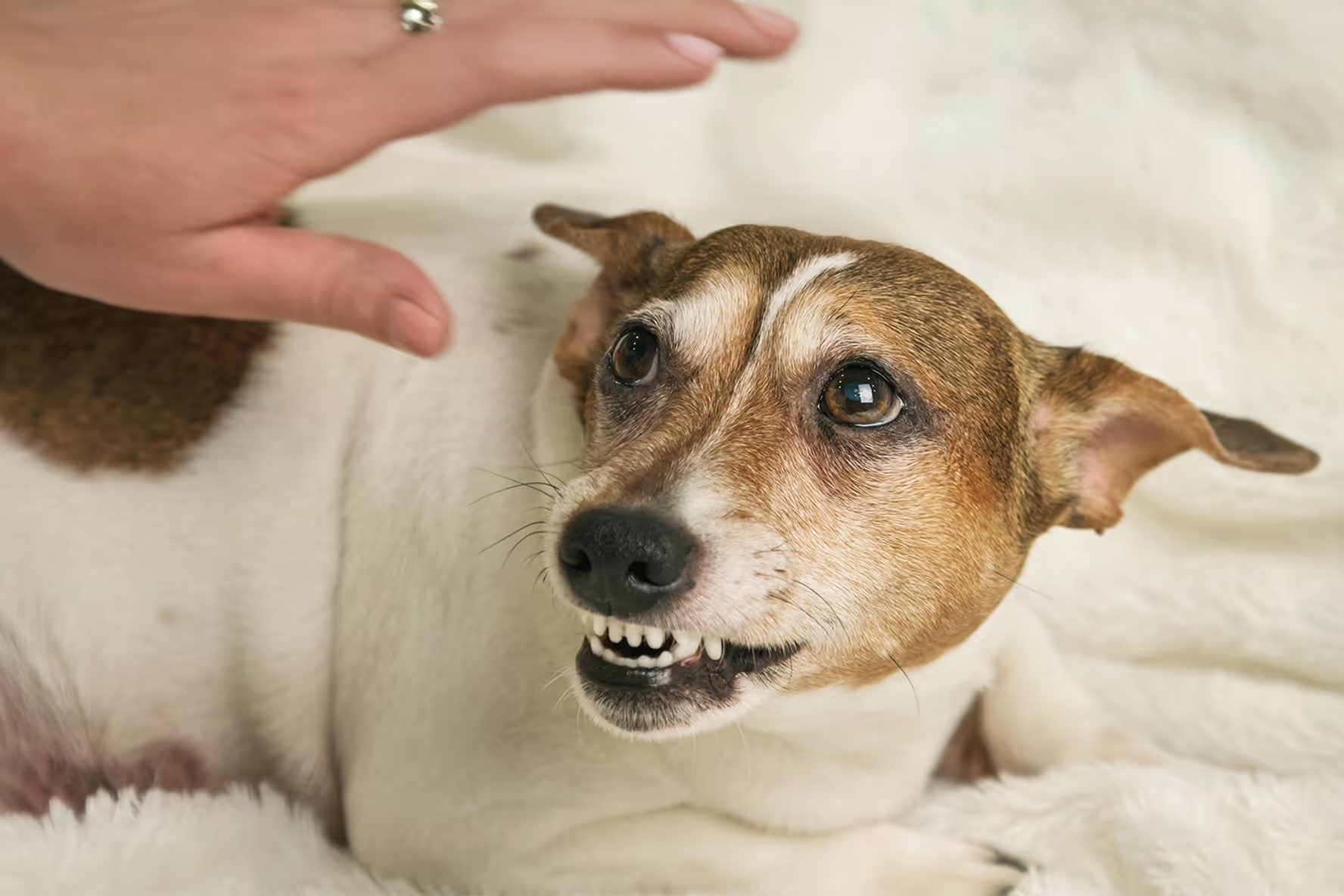
Summary
- BRAND NAMES: Adriamycin®, Rubex®
- DRUG TYPE: Anti-cancer chemotherapy drug
- TREATING CONDITIONS: Several different types of cancer in dogs and cats including lymphoma, carcinoma of the thyroid and mammary glands in dogs, and a number of sarcomas such as osteosarcoma.
- ADMINISTRATION: Liquid to be injected slowly into a vein
- CYCLES OF TREATMENT: Usually given once every 21-28 days

Definition
What is doxorubicin?
Doxorubicin is an anthracycline type of chemotherapy that is used to treat several different types of cancer. It works by slowing or stopping the growth of cancer cells.1 Although it has antibiotic properties, it is cytotoxic which mean it destroys host cells as well as bacteria. It should never be prescribed as an antibiotic.8
What is chemotherapy?
Drug treatment for cancer is called chemotherapy. The job of chemotherapy is to kill cancer cells, including those that may have spread beyond the main tumor. Unlike surgery or radiation, most types of chemotherapy, or “chemo,” don’t target a particular tumor or a particular part of the body. Most forms of chemotherapy attack all rapidly dividing cells, including cancerous ones. Although cancer cells divide rapidly, other cells do too, including the ones in the lining of your stomach and the ones that grow hair on your head. That’s why chemotherapy patients suffer from nausea and often lose their hair. Because the drugs affect all types of cells in the body, patients are likely to feel worse after a round of chemotherapy, at least temporarily.2
Use & Administration
Use of doxorubicin for cancer treatment in dogs and cats7
- Lymphoma
- Thyroid cancer
- Mammary gland carcinoma
- Melanomas
- Sarcomas
- Osteosarcoma
Doxorubicin delivery to your pet
- Doxorubicin comes as a solution (liquid) or as a powder to be mixed with liquid to be injected into a vein (intravenous or IV). Since it is a highly potent and dangerous drug, it should only be handled and delivered by a veterinary professional.8
- To avoid acute adverse effects, doxorubicin is administered as a carefully controlled slow infusion, generally over 15 to 20 minutes.2
- It is usually given once every 21 to 28 days.3 The length of treatment depends on the types of drugs patient is taking, how well patient’s body responds to them, and the type of cancer patient has.
- If this medication accidentally leaks into surrounding tissue, the skin/muscle may be severely damaged.1 Notify your veterinarian right away if redness, blistering, sores, pain, or swelling occur at or near the injection site.
Precautions
Before using doxorubicin
This drug has the potential to greatly improve your pet’s overall state of health, but tell your veterinarian if any of the following are true:
- Your pet is allergic to doxorubicin, daunorubicin (Cerubidine, DaunoXome), epirubicin (Ellence), idarubicin (Idamycin), any other medications, or any of the ingredients in doxorubicin injection.
- Your pet has or ever had any type of heart disease, a heart attack, or radiation (x-ray) therapy to the chest area.
- You are planning to give other prescription and nonprescription medications, vitamins, and/or nutritional supplements
- Your pet has or has ever had any other medical conditions.3
- This medication should be avoided in pregnant animals.4
- The IV should be firmly seated when drug is being infused into the animal since severe skin injury can result if the drug leaks into skin surrounding the injection site.
- Some patients may receive a dose of diphenhydramine or dexamethasone prior to the administration of doxorubicin in order to block any potential allergic reactions.
Certain breeds are genetically predisposed to dilative cardiomyopathy, so they should be carefully screened and monitored while receiving this medication since their predisposition places them at a higher at risk of experiencing cardiotoxicity.4 Check the list below to determine if your pet is one of the canine breeds more likely predisposed to dilated cardiomyopathy:3
- Afghan hound
- Doberman pinscher
- Bernard
- English cocker spaniel
- Cocker spaniels
- Great Dane
- Boxer
- Dalmatian
Symptoms of overdose3
- Sores in the mouth and throat
- Fever, sore throat, chills, or other signs of infection
- Unusual bleeding or bruising
- Black and tarry stools
- Red blood in stools
- Bloody vomit
- Vomited material that looks like coffee grounds
Interactions
Consult with your veterinarian regarding any drugs or supplements your pet may be taking prior to treatment with doxorubicin. Drugs such as cyclophosphamide and other anti-cancer medications have been shown to interact with doxorubicin, increasing the risk of toxicity.4
Some products that may interact with this drug include:1
- Digoxin
- Stavudine
- Streptozocin
- Zidovudine
- Progesterone
- Trastuzumab
Other medications can affect removal of doxorubicin from patient’s body, which may affect how doxorubicin works. Examples include the following:1
- Azole antifungals (such as ketoconazole)
- Drugs used to treat seizures (such as carbamazepine phenobarbital, phenytoin, primidone)
- Calcium channel blockers (e.g., verapamil, nifedipine)
- Rifamycins (such as rifabutin)
Avoid eating foods or products containing turmeric (curcumin) while taking doxorubicin. It may decrease doxorubicin’s effects. Consult your veterinarian for more details.5
Severe interactions can arise when combined with the following drugs:6
- Selected immunosuppressants like talimogene iaherparepvec (IMLYGIC®)
- Selected immunosuppressive agents, live vaccine including BCG (Bacillus Calmette–Guérin)
- Immunomodulators like efalizumab and natalizumab
Serious interactions may occur when taken with the following drugs:6
- Selected chemotherapy agents like turmeric
- Anthracyclines, trastuzumab
- Etoposide, ketoconazole
- Selected antineoplastics, strong CYP3A4 inducers and inhibitors
- Immunosuppressives, and immunomodulators like upadactinib
- Selected multiple sclerosis agents
- Selected myelosuppressive agents like clozapine and deferiprone
- Stavudine, zidovudine
Moderate interactions are likely when given together with any of the following drugs:6
- Paclitaxel
- Antineoplastics such as digozin
Care Tips At Home
Vomiting
- Take the pet’s temperature. Call the hospital if greater than 103 ℉ or below 99 ℉.
- Withhold food and water for 12 hours, and then offer small amounts of water every 2 hours.
- If your pet does not vomit after drinking water, offer small amounts of bland foods such as boiled, baked, or broiled white chicken or turkey meat, or boiled hamburger (skim off the fat) with boiled white rice. If your pet tolerates small bland meals without vomiting, gradually reintroduce his/her normal diet over about 3 days.
- Call the hospital if the vomiting is severe, is accompanied by a fever, or persists longer than 24 hours.
Diarrhea
- Withhold food for 12 hours. Continue to provide fresh water.
- Offer your pet bland, easily digestible foods such as boiled chicken or turkey or hamburger and white rice. Gradually reintroduce your pet’s normal diet.
- Call the hospital if the diarrhea persists for more than 48 hours or if it is associated with a rectal temperature above 103 ℉ or below 99 ℉.
Decreased appetite / anorexia
- Take your pet’s temperature. Call the hospital if the temperature is above 103 ℉ or below 99 ℉.
- Offer your pet interesting and enticing foods such as chicken, turkey, and hamburger. Also try chicken and lamb baby food (dogs only). Adding broth or yogurt to the food can help increase palatability. Avoid foods that are too fatty or rich as these can cause problems. If you need help tempting your pet to eat, please talk to your veterinarian for more suggestions.
- Call the hospital if anorexia persists for more than 2 days.
Lethargy
- Allow your pet to rest as much as he/she wants. His/her energy level should return to normal within a couple of days.
- Take your pet’s temperature. Call the hospital if the temperature is above 103 ℉ or below 99 ℉.
- Call the hospital if your pet is too weak to support his/her weight or is unable to walk or is unresponsive.
Hair loss
- Hair is loss is uncommon in most dog breeds that do not require grooming to keep their coats short. However, dogs with continuous hair growth, such as poodles, Bichon Frises and some terriers are more prone to this side effect.
- If your pet experiences significant hair loss, a coat (which can be purchased at pet stores) may keep your dog more comfortable when outside in cold weather.
Skin damage
- Call the doctor to discuss management of the leg.
- Try to keep your pet from licking at the area.
- You may need to wrap the leg or apply an Elizabethan (cone) collar to help prevent your pet from licking at the area
Nerve damage
- Contact your veterinarian if you detect your pet standing or walking abnormally or drooping on one side of the face.
Read about other anti-cancer medications here.
REFERENCES:
- Webmd. “Doxorubicin HCL Vial.” Accessed Sep 22, 2019. https://www.webmd.com/drugs/2/drug-7750/doxorubicin-intravenous/details
- Emily Fullerton. 2017. “Doxorubicin: An Overview.” Today’s veterinary nurse. https://todaysveterinarynurse.com/oncology/veterinary-doxorubicin/
- MedlinePlus. “Doxorubicin.” Last revised Jan 1, 2019. https://medlineplus.gov/druginfo/meds/a682221.html#why
- Chemocare. “Doxorubicin.” Accessed Sep 22, 2019. http://chemocare.com/chemotherapy/drug-info/doxorubicin.aspx
- Canceresearchuk. “Cancer drugs A to Z list.” Last reviewed Sep 18, 2017. https://www.cancerresearchuk.org/about-cancer/cancer-in-general/treatment/cancer-drugs/drugs/doxorubicin
- Webmd. “Does Doxorubicin HCL Vial Interact with other Medications?” Accessed Oct 6, 2019. https://www.webmd.com/drugs/2/drug-7750/doxorubicin-intravenous/details/list-interaction-medication
- Petplace. “Doxorubicin-adriamycin for dogs and cats” Accessed Oct 20, 2019. https://www.petplace.com/article/drug-library/drug-library/library/doxorubicin-adriamycin-for-dogs-and-cats/
- Vetinfo. “Doxorubicin in dogs” Accessed Oct 20, 2019. https://www.vetinfo.com/doxorubicin-for-dogs.html


